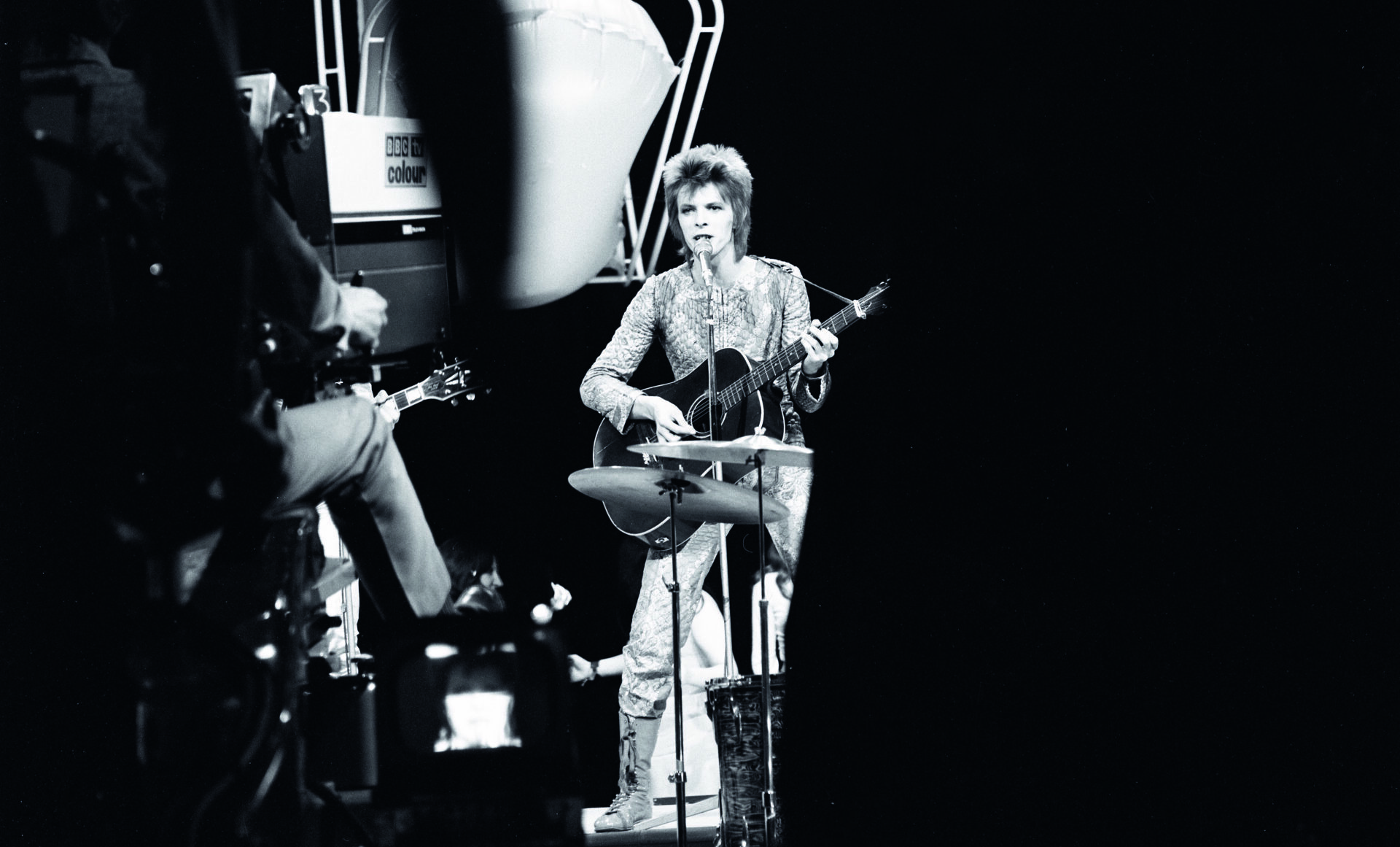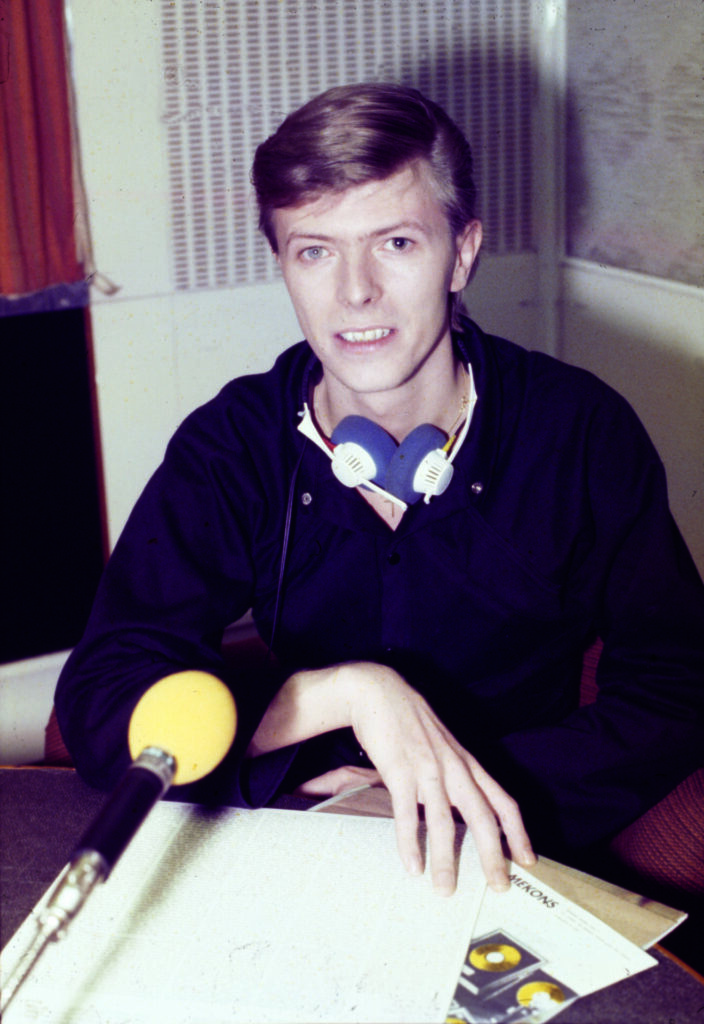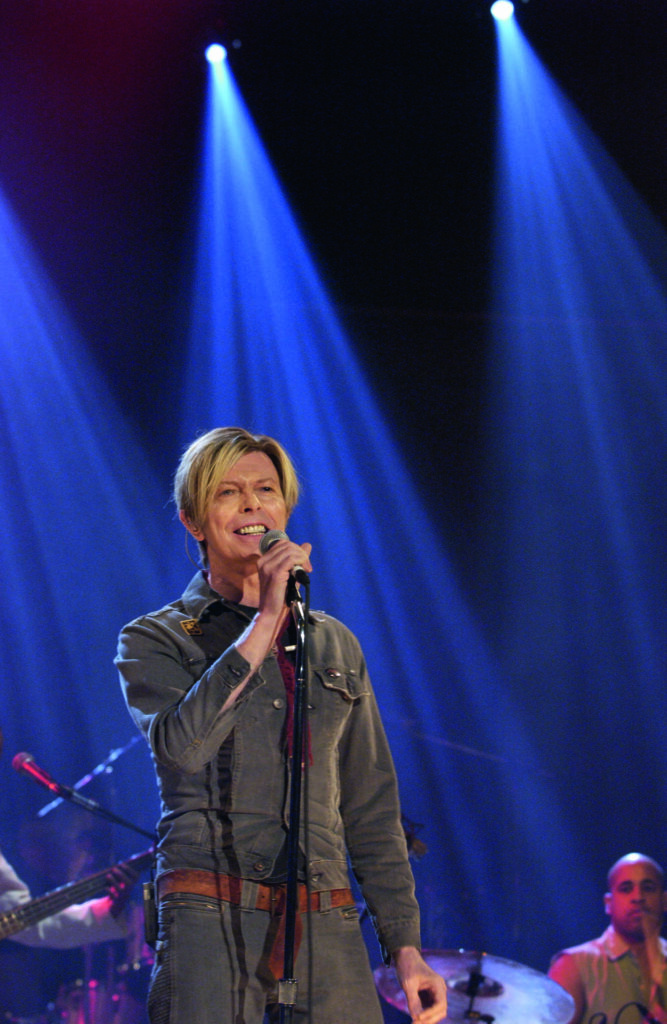David Bowie’s last interview and the mystery surrounding his heart attacks
Tom Hagler, author of the new book ‘David Bowie at the BBC’, has trawled through BBC archives to compile Bowie’s BBC interviews and appearances over 50 years. Here, he explains how Bowie's last interview proved unexpectedly revelatory.
By Tom Hagler

In 2004, David Bowie had a heart attack which would not only end his life on the road but his public life, too. He would also never give another interview. Or, at least, that’s what I thought. But when I trawled through the BBC archives for ‘David Bowie at the BBC’, I made a discovery. A year after his heart attack, Bowie got on the phone to a small, late-night specialist jazz show to speak about his desire to make a jazz album – something he would eventually do with Blackstar – and to talk briefly about his health.
This was a revelation because I wasn’t the only Bowie aficionado to believe that the musician’s last interview had been conducted a year earlier by BBC presenter Marc Riley. In fact, when I interviewed Marc for this book, he still believed his interview in 2004 was Bowie’s final one, and Marc should know – he interviewed the man himself five times and his ‘A to Z of David Bowie’ podcast series comes in at a weighty 71 episodes. Even the official David Bowie site on Facebook validates that view.
So, why has this interview been seemingly forgotten? One possible reason is that it was for a niche audience of late-night Radio 2 jazz buffs and focussed almost entirely on Bowie’s love of jazz. Another reason is that no-one could possibly know at the time that this would be his final interview.* Jazz saxophonist Courtney Pine, the host of Radio 2’s Jazz Crusade, begins with an innocent-sounding question: “How you doing, man?” he asks.

“Thanks very much for asking, Courtney,” replies Bowie. “Yeah, I’m doing fine. I’ve been working out a lot this year and I’m back on course, I think.”
In all the research I’ve done on Bowie, this is the only time I have heard Bowie himself refer to his heart attack, however obliquely. His voice is strong and he is as quick-witted as ever but to be only ‘back on course, I think’ more than a year later, does sound like a long convalescence. Patients who have undergone an angioplasty (an insertion of a stent into their artery), as Bowie did, are usually back to their normal routine within a couple of months. How long did he take to recover and how many heart attacks did he have? None of this is known. Bowie disappeared from the limelight so successfully and his inner circle was so closed, that his last years remain shrouded in mystery.
Here is a stunning example of how little information leaked out even at the time. When I called up Courtney Pine to ask what he thought of Bowie’s response to his opening question, he told me that when he conducted the interview, he had not even known that Bowie, a friend of his, had suffered a heart attack.
Even now, that level of mystery is apparent when journalists talk about Bowie’s heart attack on stage. For a start, it wasn’t a heart attack, it was heart attacks, plural. Three days before his final concert in Scheessel, Germany, Bowie had complained of severe chest pains on stage in Prague. He was in such pain that he left the stage for two songs before returning to tell the crowd, “Let me tell you what’s happening here. I’ve got a severely pinched nerve… and I’m having intense pains across my shoulder into my chest. So, I’m going to keep going as best as I can… but I must let you know, I’m in terrible pain, okay?” He managed a couple more songs before once again having to leave the stage.
“I do apologise,” he says on his second return as his bassist, Gail Ann Dorsey, finds him a stool to sit on. “This doesn’t usually happen, so look on it as a bonus (he laughs and the audience cheers). They just gave me some pills to try and take the pain away, so we’ll see how it goes. Anyway, let’s keep going. How you doing?” Another round of cheers and applause but as the chords to Changes ring out, he says, “I’m sorry folks but I just can’t continue, I’m in too much pain. I have to bid you goodnight. I’m so sorry.” With that he leaves the stage for a final time.
He was taken to hospital in Prague but three days later he’s back on stage in Germany. How is that possible? Could the hospital have missed the glaring signs? I asked an accident and emergency doctor what she would do if a 57-year-old man came in one night to her A&E department complaining of intense pain not only in his chest but also across his shoulder. Could it be a pinched nerve, I asked? Unlikely, she said, as pain from a pinched nerve is usually localised to one spot, while pain spread across the shoulder and chest is more likely to be symptomatic of a heart attack. She told me that, as a matter of course, she would carry out both an electrocardiogram, which measures the heart’s electrical activity, and a simple 10-minute blood test and almost certainly keep the patient overnight for observation. What if that person, I asked, had been one of the world’s best-known smokers and was called David Bowie? “I’d get the tests done even faster,” she replied.

To put Bowie’s BBC interviews and appearances in context, I’ve included stories like the above to preface each section. There are close to 40 entries ranging from his first, surprisingly confident, TV appearances in the early sixties to the first appearance of the prototype Spiders from Mars in early 1970 on a BBC stage when Mick Ronson was so new to the band that Bowie still referred to him as ‘Michael’. What did The BBC do with that culturally priceless tape? It wiped it. Much later, a bootleg of dubious quality appeared and then, seemingly out of nowhere, a pristine copy was found. It turned out it was Bowie’s own recording; he kept absolutely everything, seemingly convinced right from the beginning, that they’d be needed for posterity. There’s, of course, that appearance on Top of the Pops with Starman, which kickstarted the seventies and influenced those who would go on to define the eighties, and much more besides.
But going through all the archives, the one thing which struck me above all else was his bravery. Throughout his career, Bowie had dared to be different; he dared to wear dresses and make-up, to shave his eyebrows and look like an alien, to come out as bi-sexual when it got you beaten up. But near the end of his life, he exhibited a whole new level of bravery. At the end of that last ever concert in Germany, albeit somewhat subdued and no doubt full of pain killers, Bowie went back on stage and performed a three-song encore. He then gathered his band around him, bowed and, after waving to the audience, left the stage and walked down the steps. At the bottom, he collapsed. Within minutes, he was being taken to hospital for emergency surgery. Bowie had performed through a heart attack not once but twice. Amid a life full of courage, his final performances were perhaps his most courageous acts of all.
Footnote: *Bowie would appear on Ricky Gervais’s Extras in 2006 and give a minute-long rant for its promotion but neither constitute an interview.
